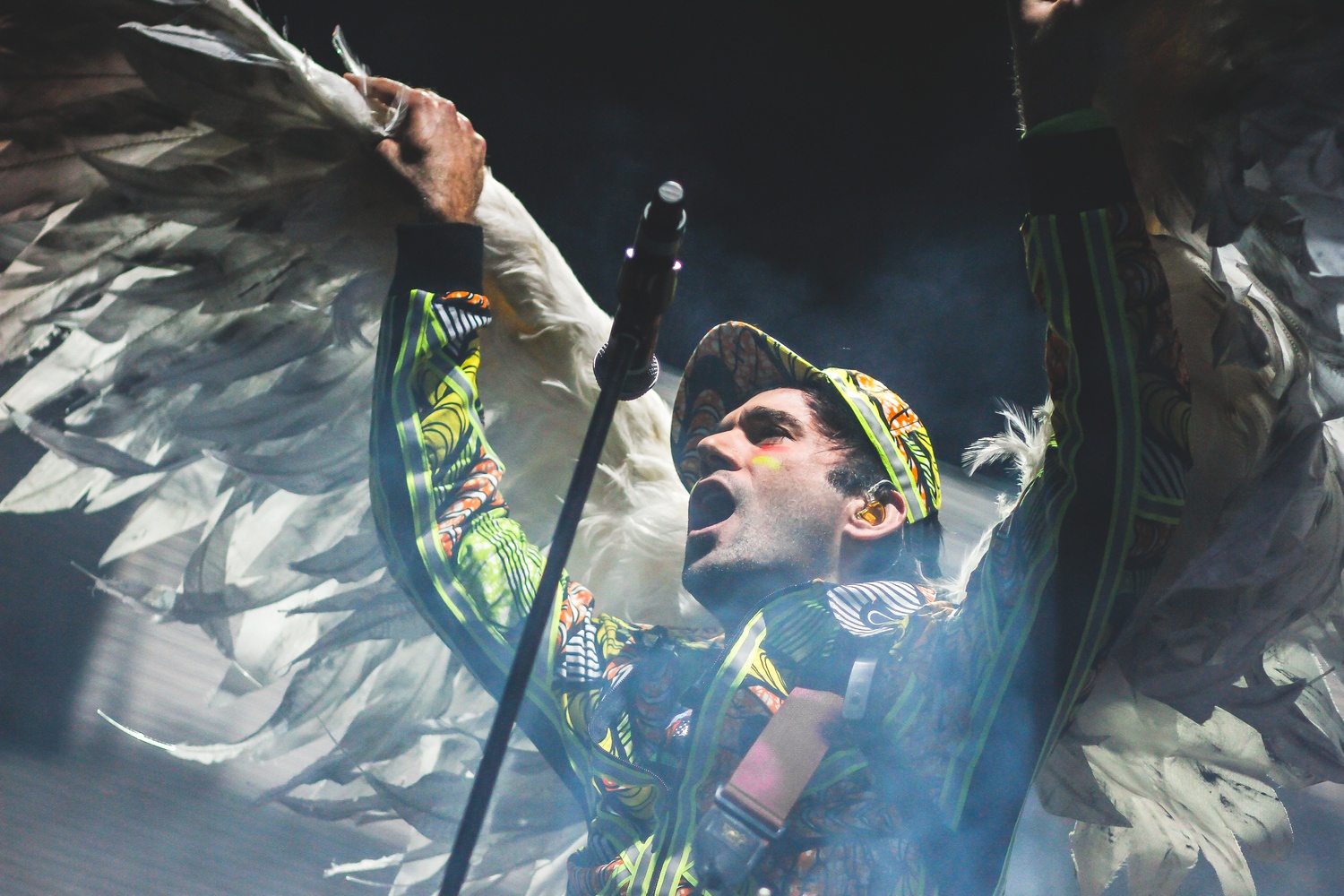
News
Harvard Alumni Email Forwarding Services to Remain Unchanged Despite Student Protest

News
Democracy Center to Close, Leaving Progressive Cambridge Groups Scrambling

News
Harvard Student Government Approves PSC Petition for Referendum on Israel Divestment

News
Cambridge City Manager Yi-An Huang ’05 Elected Co-Chair of Metropolitan Mayors Coalition

News
Cambridge Residents Slam Council Proposal to Delay Bike Lane Construction
Boston Calling 2016: Sufjan Stevens

Sufjan Stevens’s set at Boston Calling on Friday was an elaborate exercise in risk. From absurd, over-the-top costumes and set pieces that seemed assembled from parts bought at A.C. Moore to the two female backup singers to whom Stevens frequently ceded the stage, various aspects of the performance might have come off horribly. Instead, they came together to create a ridiculous, high-energy romp and the highlight of the weekend’s offerings.
But Stevens’s riskiest decision by far involved the timing of his performance. Other than the headliners, the artists at Boston Calling do not have the luxury of long set lengths. Nevertheless, Stevens chose to perform the majority of “Impossible Soul” off of 2010’s “The Age of Adz,” a 23-minute track, near the end of his set; as a result, he performed only 12 songs, five of which were from “Adz.” His Boston Calling performance was, then, an apt complement to his previous tour, on which he performed 2015’s brilliant “Carrie & Lowell” in its entirety. Even for those who didn’t see Stevens’s previous tour, the set and “Impossible Soul” in particular were remarkable. He began the song by putting on an enormous pair of silver wings and climbing a similarly colored structure, from which he sang in autotune. By the end, he and his backup singers were bouncing about the stage in capes to which were attached dozens of balloons, both the traditional sort and the long kind used to make balloon animals. Stevens used the varying textures of “Impossible Soul” as a substrate for one of the most flamboyantly performative moments of the entire festival.
Which is not to say that Stevens’s set was unremittingly energetic. After a fiery performance of “Vesuvius,” Stevens moved toward the melancholy, telling the audience, “I think I’ve earned the right to sing a song about death, if you don’t mind.” The rendition of Stevens’ most popular song, “Casimir Pulaski Day,” that followed was true to the recorded version, but its contrast with the electro-influenced songs that came before it lent it greater power.
Stevens is a musician known for his tightly and innovatively written pieces, and rightly so. A priori, one might not have tapped his show to be one of the standout performances of the weekend—much of his early music qualifies as “white guy with guitar,” albeit the best the genre has to offer. But from the soothing of “Seven Swans,” with which Stevens opened his set, to the electronic moments of “Impossible Soul,” Stevens is nothing if not unconventional, and his set was as unconventional as they come. As Boston Calling took a more mainstream bent, Stevens successfully relished in the strange.
—Staff writer Grace E. Huckins can be reached at grace.huckins@thecrimson.com.
Want to keep up with breaking news? Subscribe to our email newsletter.

